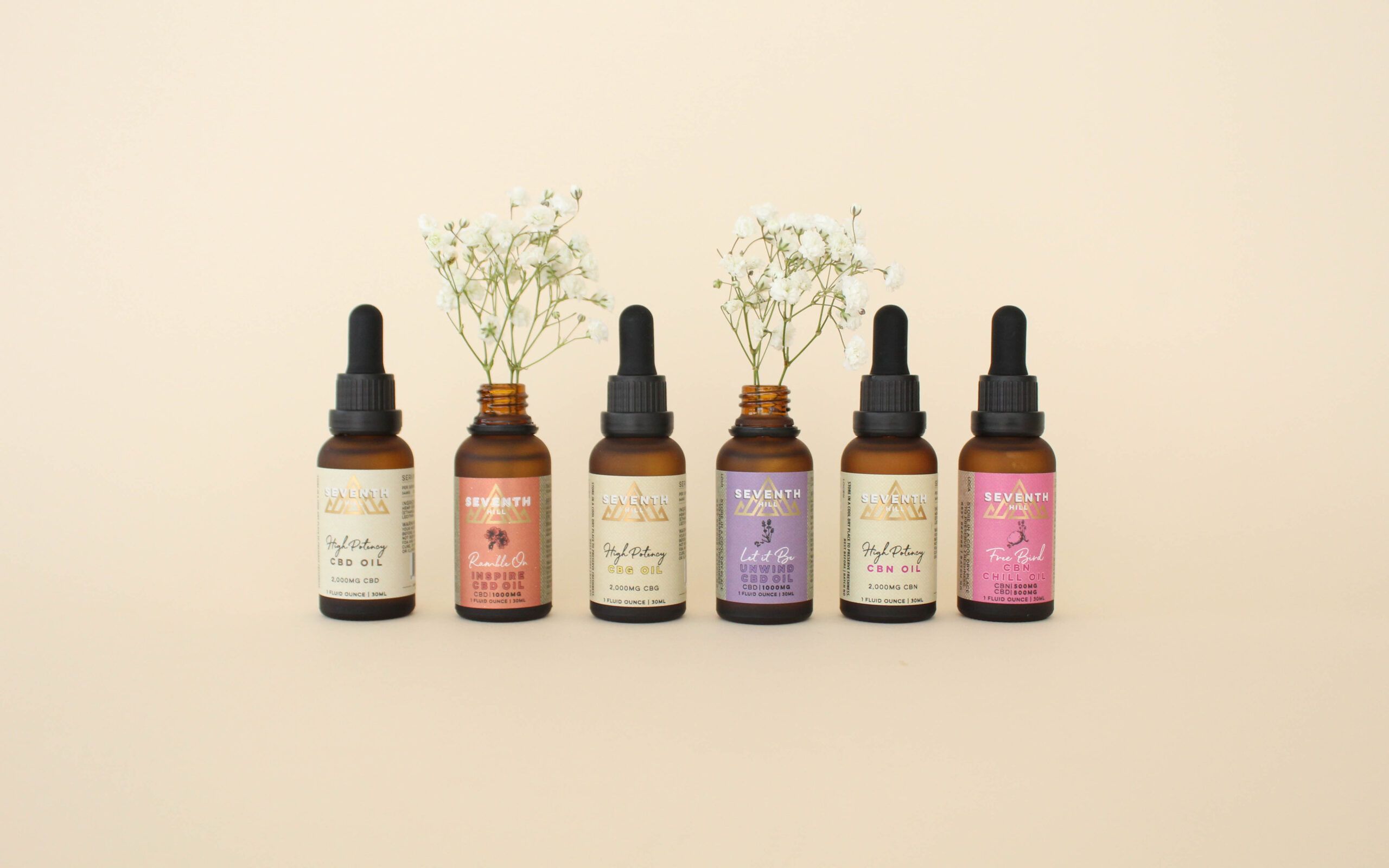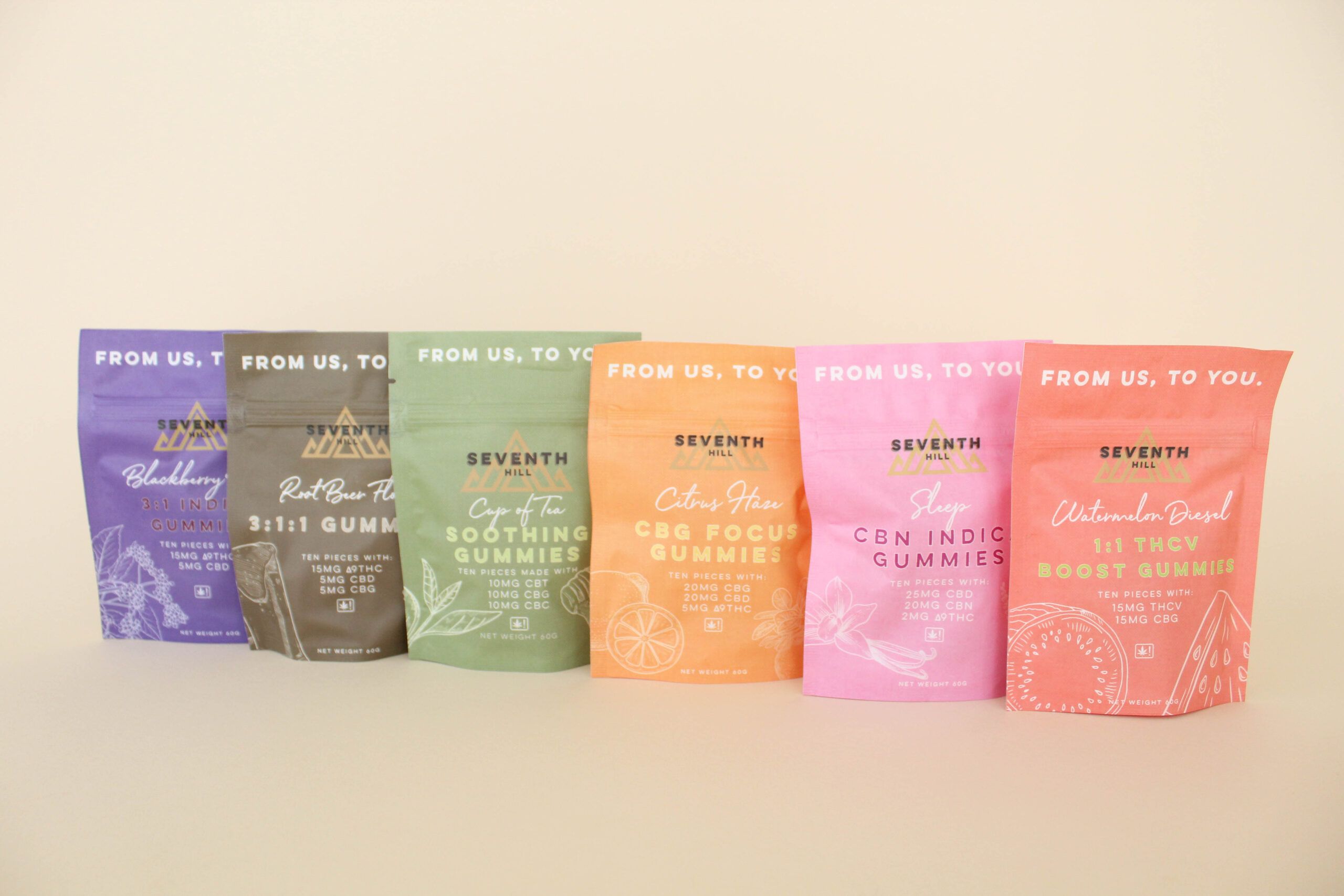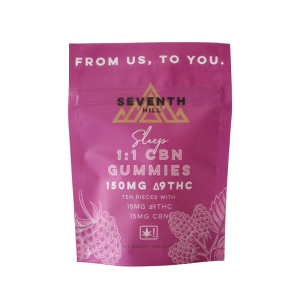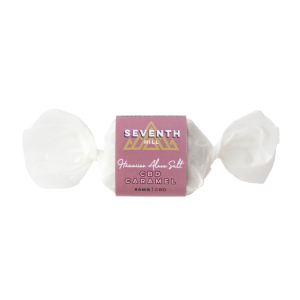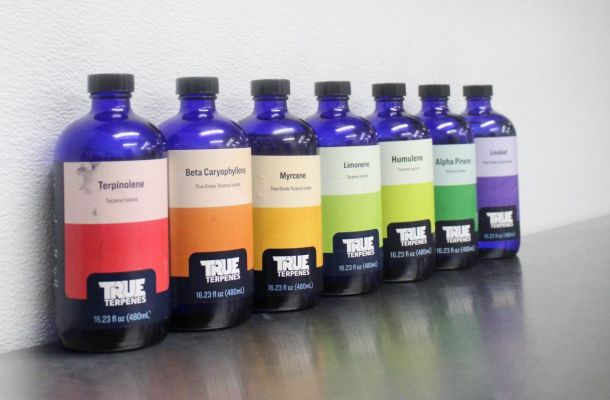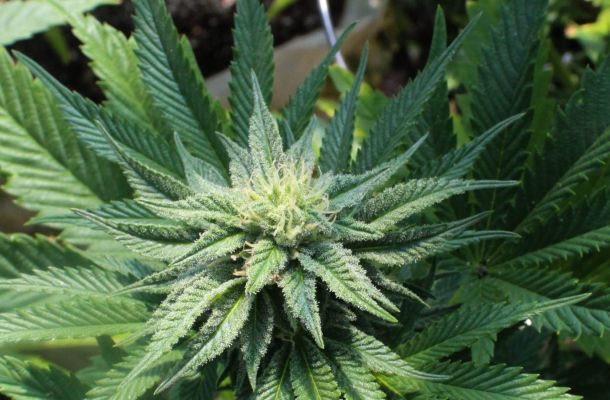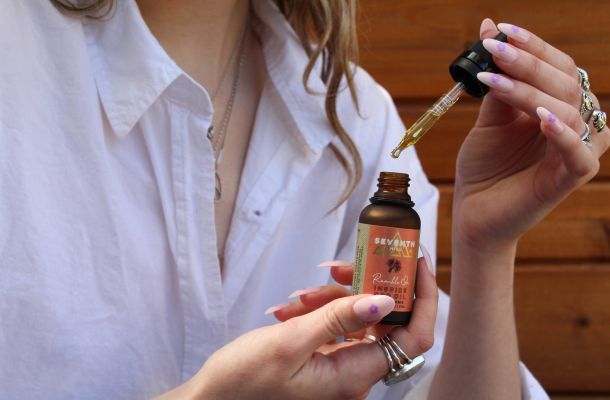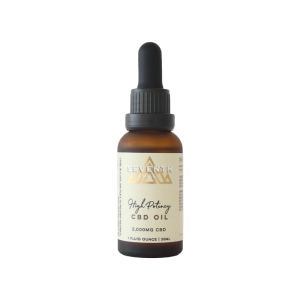
Comparing Hemp Products: Edibles and Oils
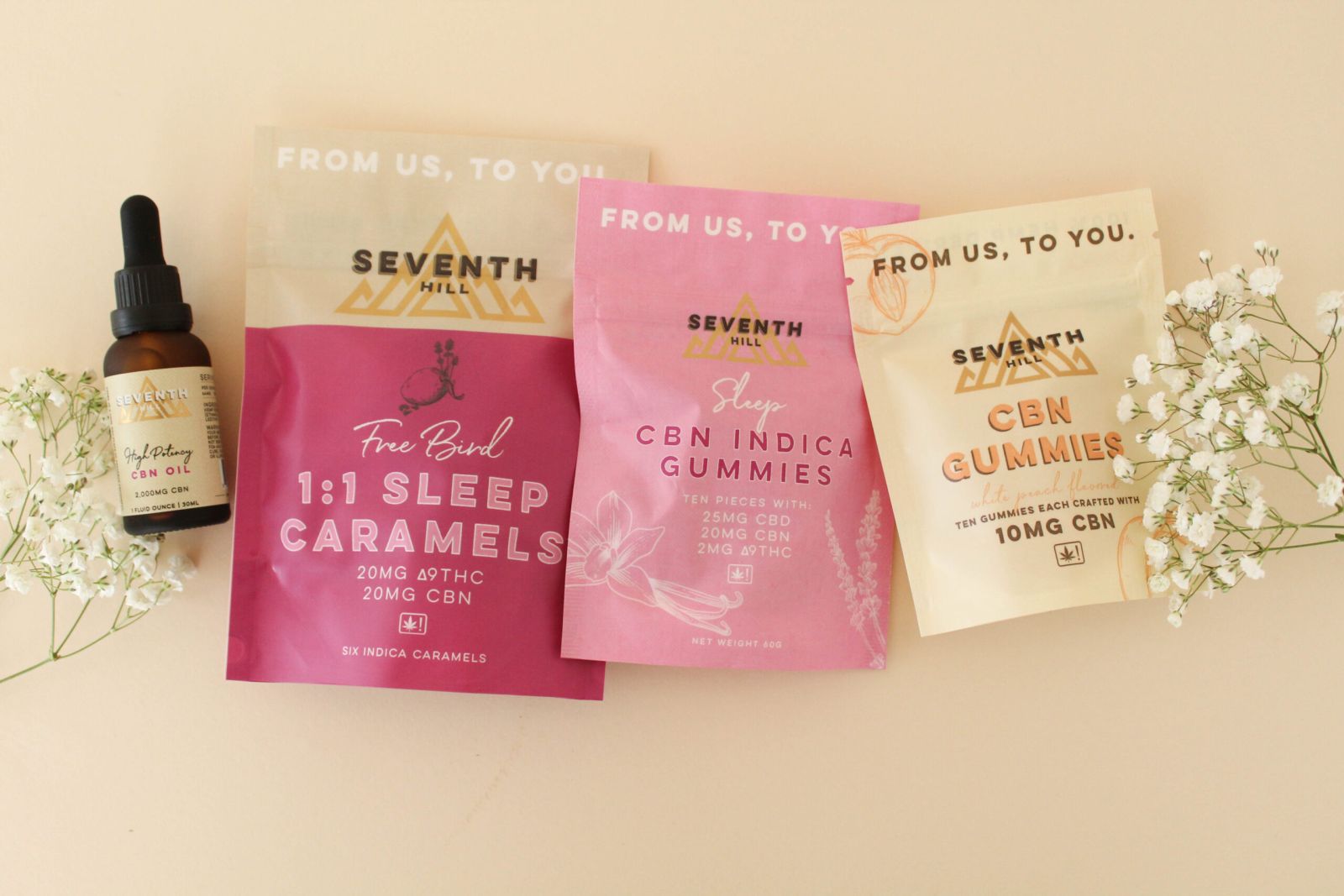
Hemp products come in all sorts of shapes and sizes. Finding the right one for you and your unique needs can feel like a game of goldie locks. Seventh Hill is here to eliminate the guesswork by teaching you the main differences between our favorite hemp products: edibles and oils. In this blog, we’ll break down the key variables that make these products different and explain which one may be right for whom.
Comparing Hemp Products: Edibles and Oils – Seventh Hill CBD
Hemp products come in all sorts of shapes and sizes. Finding the right one for you and your unique needs can feel like a game of goldie locks. Seventh Hill is here to teach you the main differences between our favorite hemp products: edibles and oils. In this blog, we’ll break down the key variables that make these products different and explain which one may be right for whom.
What is a hemp product?
The 2018 Farm Bill defines hemp as having a ∆9THC content of less than .3%. If a product (flower, seeds, extract, edible, etc) contains more than .3% ∆9THC is a cannabis product.
This definition applies to hemp flowers but can also apply to edibles based on their weight. To put it simply, a hemp product must contain less than .3% ∆9THC based on how much each piece weighs.
Hemp products can contain a wide variety of cannabinoids, like CBD, CBC, and other forms of THC like ∆8THC, not just ∆9THC. However, ∆9THC tends to be the crowd favorite cannabinoid because of its euphoric effects. Scientists have found over 100 different cannabinoids in research but among the most common and popular are:
- CBD (Cannabidiol)
- CBC (Cannabichromene)
- CBG (Cannabigerol)
- CBN (Cannabinol)
- CBT (Cannabitriol)
- ∆9THC (Delta-9 Tetrahydrocannabinol)
- THCv (Tetrahydrocannabivarin)
- THCA (Tetrahydrocannabinolic Acid)
Extractors often use heat and solvents, like ethanol or alcohol, to extract cannabinoids from the plant. From there, manufacturers strategically transfer the cannabinoids into just about any substance to create a hemp product. Manufacturers can dissolve hemp extract into a simple organic oil or bake it into a candy. No single way is objectively better than the other without considering the users own preferences.
However, there are significant differences between consuming a hemp edible compared to hemp oil. These factors include:
- How long the effects of hemp products last
- How quickly you can feel the effects
- How strongly those effects will feel throughout the body
Hemp Oils
Hemp oils represent a straightforward concept: someone dissolves hemp extract directly into an oil. Stores sell hemp oils in bottles with a dropper built into the lid for quick and easy consumption.
Administer hemp oils directly into your mouth and hold them below your tongue for optimal absorption. Holding the oil underneath your tongue allows your body to directly absorb it through your sublingual tissue. This method allows the oil to get to work extra fast and provide even longer effects.
Pros:
#1: Clean Ingredients
Hemp oils are loved far for their simple and clean ingredients. Our hemp oils have 3-4 all-natural ingredients. Their simplicity makes hemp oils gluten, dairy, and sugar-free, ideal for folks with dietary restrictions.
#2: Quick, Easy and Discrete
Manufacturers package their hemp oils with droppers built into their lids for quick and easy consumption. This convenience makes them ideal for folks who are busy and on-the-go.
#3: Subtle Effects
Hemp oils have pronounced effects without being overwhelming. Their subtle effects make hemp oils ideal for all-day, everyday use.
#4: Cost Effective
When comparing cost per cannabinoid, hemp oils are the most cost-effective option. This is likely because of their simple ingredients and overall production.
Hemp Edibles
Many folks love hemp edibles for their long-lasting, pronounced effects. THC-dominant edibles provide a bone-deep body buzz that can last for hours (depending on the user). For better or worse, you can stir hemp extract into just about any recipe. The most common hemp edibles are gummies, drinks, candy, and other baked treats.
Pros:
#1: Edibles Last Longer
The stomach and liver process hemp edibles. This process makes the effects of the edible at least twice as potent before it transfers into the bloodstream. Depending on the user, an edible can have its effects last up to eight hours.
#2: Stronger Effects
Since THC becomes more potent when being processed as an edible, hemp edibles have much stronger effects than hemp oils. This can be ideal for those folks who have a hard time feeling the effects of hemp edibles.
#3: They’re Freaking Delicious
For better or worse, hemp extract can be stirred into just about anything- and we’ve seen folks do it.
Which Hemp Product is Best for You?
If you need a subtle yet reliable, everyday addition to your wellness routine, hemp oils are the best option. But to drastically shake up your wellness routine with something pronounced and potent, an edible might be more like it. If you still feel unsure about which product is right for you, continue doing your own research.
